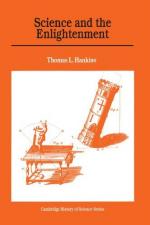
|
| Name: _________________________ | Period: ___________________ |
This test consists of 15 multiple choice questions and 5 short answer questions.
Multiple Choice Questions
1. In Chapter 5, who analyzed the mechanics of the muscles and skeleton of the human body and tried to explain muscular contraction as a hydraulic or mechanical inflation of the tissue?
(a) Descartes.
(b) Grew.
(c) Boyle.
(d) Borelli.
2. The Berlin Academy of Sciences was founded in 1700 but achieved little until it was reorganized in 1743 on the Parisian model by ________.
(a) Walt Whitman.
(b) Frederick the Great.
(c) Cassius Clay.
(d) Vladimir Lenin.
3. According to the narrator in Chapter 5, who coined the word "spermatozoon" in 1827?
(a) Swammerdam.
(b) Linnaeus.
(c) Von Baer.
(d) Hartsoeker.
4. The following were the three primary kinds of government Montesquieu distinguished between in Chapter 6 except for which one?
(a) Parliment.
(b) Monarchy.
(c) Democracy.
(d) Despotism.
5. In attempting to understand the role of air in combustion and calcination, Lavoisier extended ________'s theory of the vaporous state into chemistry.
(a) Macquer.
(b) Black.
(c) Turgot.
(d) Bayen.
6. Who saw his physiology as an animata anatome, an experimental science that investigated and explained the special properties and functions of living matter without going beyond the information obtained from the senses?
(a) Glisson.
(b) D'Alembert.
(c) Haller.
(d) Diderot.
7. The narrator explains in Chapter 6 that the ________ believed that the improvement of society could be brought about by making economic activity agree more closely with the laws implanted in nature by Providence.
(a) Physiocrats.
(b) Grains.
(c) Pantisocrat.
(d) Fermiers.
8. Who concluded in Chapter 6 that "where experiments {from cautious observations of human life} are judiciously collected and compared, we may hope to establish on them a science, which will not be inferior in certainty, and will be much superior in utility to any other of human comprehension"?
(a) Montesquieu.
(b) Bayle.
(c) Voltaire.
(d) Hume.
9. Who opened his "Spirit of the Laws" with a definition of law in Chapter 6?
(a) Hume.
(b) Rousseau.
(c) Voltaire.
(d) Montesquieu.
10. Electricians in the following countries concluded from their experiments that electrified seeds germinated faster, that electrified plants sent out shoots earlier, and that electrified animals were slightly lighter than non-electrified ones, except for which country?
(a) France.
(b) America.
(c) Germany.
(d) England.
11. Who confirmed Reaumur's experiments, did others on the digestive action of saliva, and performed the experiments on himself?
(a) Borelli.
(b) Van Helmont.
(c) Spallanzani.
(d) Stevens.
12. Natural theology in England continued well into the nineteenth century, where it finally encountered its nemesis in ________, according to the narrator in Chapter 5.
(a) Foucault.
(b) Freud.
(c) Darwin.
(d) Cambridge.
13. According to the narrator in Chapter 6, the ________ philosophers found their principles in a special human sentiment or intuitive sociability.
(a) Scottish.
(b) Irish.
(c) American.
(d) French.
14. According to the narrator in Chapter 6, who coined the term physiocratie?
(a) Nemours.
(b) Pmpadour.
(c) Mirabeau.
(d) La Riviere.
15. Early in the seventeenth century ________ urged the creation of a great dictionary that would bring together in an orderly fashion all of the practical knowledge that was known only to craftsmen in their respective trades.
(a) Montesquieu.
(b) Chambers.
(c) D'Alembert.
(d) Bacon.
Short Answer Questions
1. Saussure found that plants grow better in an atmosphere rich in fixed air, up to a concentration of approximately ________ percent.
2. Acknowledging the existence of the gaseous states was a prerequisite for explaining combustion, the central problem of the ________, according to the narrator in chapter 4.
3. ________ theory entered into law not only in the making of contracts but also in the determination of guilt and innocence.
4. In Chapter 5, Ingen-Housz was able to show in his "Experiments on Vegetables" that it was ________ not ________, that was essential for the production of oxygen by the leaves.
5. Robert Whytt and Charles Aston studied the properties of ________ and ________ according, to the narrator in Chapter 4.
|
This section contains 576 words (approx. 2 pages at 300 words per page) |

|




